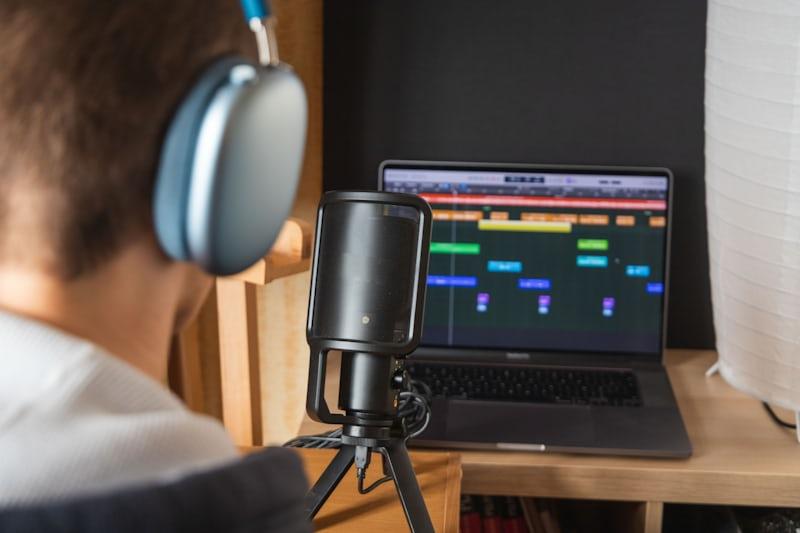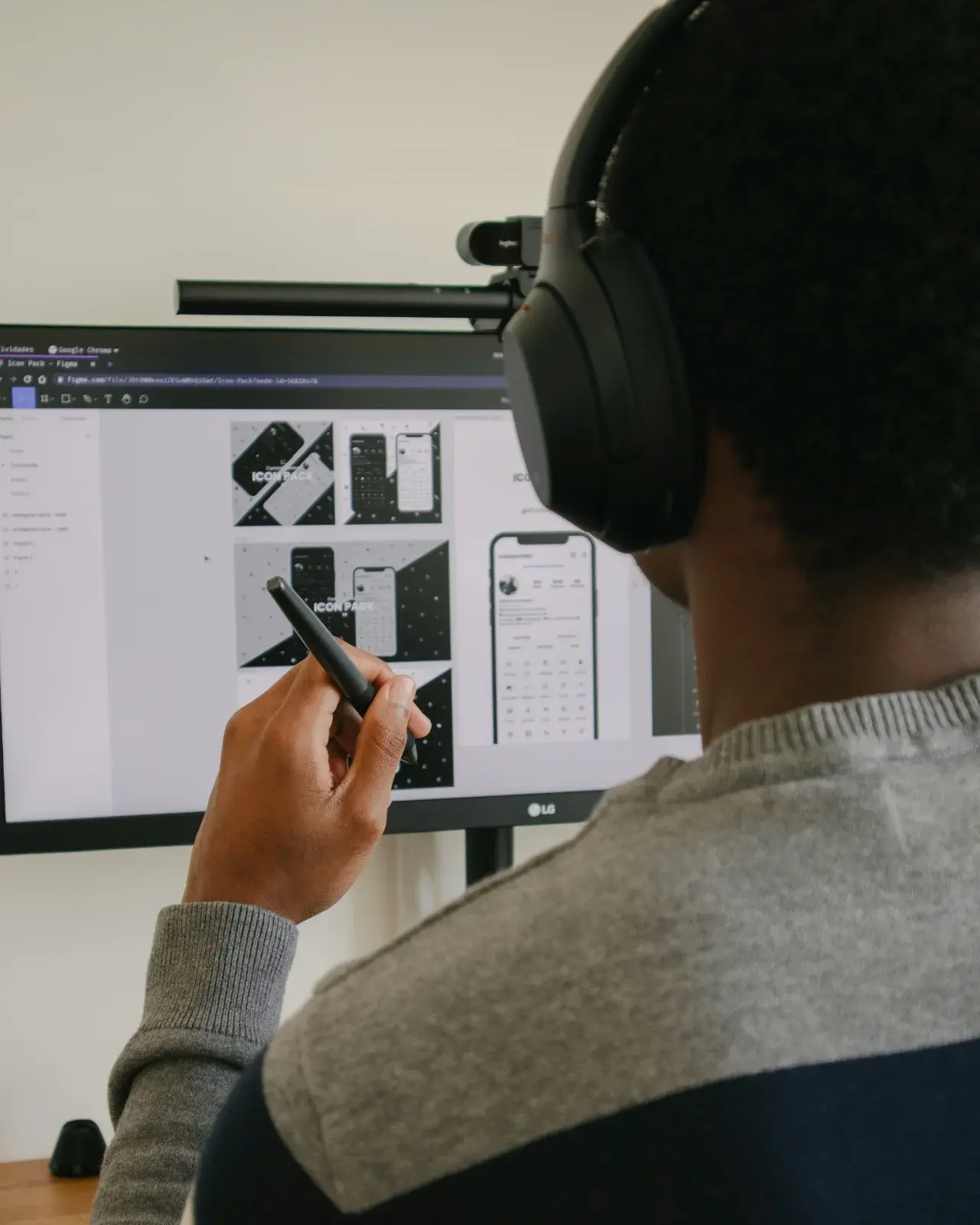Digital Audio Mixer vs Analog Mixer: Which One Should You Choose?

This blog post is published by Crelands, a no-cost digi-product listing platform that aggregates and markets digital products (including music) for creatives & influencers. You can sign up here to list your products or browse our music gallery here.
Digital Audio Mixer vs Analog Mixer: Which One Should You Choose?
Whether you’re setting up a home studio in Mumbai, running a live event in Delhi, or producing devotional songs in Chennai, choosing the right audio mixer is essential for delivering high-quality sound.
In 2025, one of the most common dilemmas Indian musicians, podcasters, DJs, and sound engineers face is: Should I go for a digital audio mixer or an analog mixer?
In this guide, we’ll break down the differences between digital audio mixers and analog mixers, compare their pros and cons, and help you decide which one best fits your needs in the Indian market.
But first…
What is an Audio Mixer?
An audio mixer (also called a mixing console or soundboard) is a device that combines, balances, and processes multiple audio inputs (like microphones, instruments, and playback devices) to create a clean output signal for live sound, recording, or broadcasting.
There are two main types:
Analog Mixers: Use electrical signals to route and control sound.
Digital Mixers: Convert audio into digital signals and allow advanced processing using built-in software.
See also: An expert's guide to grow your digital products selling business in India
Key Differences: Digital Audio Mixer vs Analog Mixer
1. Features and Sound quality
Analog Mixer:
- Known for its warm, natural sound.
- Limited to basic EQ (equalization) and volume control.
- No in-built effects or presets.
Digital Mixer:
- Offers high-definition sound with advanced DSP (Digital Signal Processing).
- Built-in effects like reverb, compression, delay.
- Better suited for modern production and streaming.
Winner: Digital mixer (especially if you need effects and post-processing).
2. Ease of Use
Analog Mixer:
- Easier to understand for beginners.
- What you see is what you get—no menus or layers.
- Great for small live setups like college events or mandal shows.
Digital Mixer:
- Steeper learning curve due to menus, layers, and touchscreen controls.
- Can be controlled via apps or laptops.
- Excellent for professional use and experienced sound engineers.
Winner: Analog mixer for simplicity; digital mixer for flexibility.
3. Portability and Space
Analog Mixer:
- Bulky and takes up more space.
- Wires for every input/output.
Digital Mixer:
- Compact and lightweight.
- Wireless control via smartphone/tablet in many models.
Winner: Digital mixer, especially for mobile setups and gigs.
4. Price and Availability in India
Analog Mixer:
- More affordable starting around ₹3,000 to ₹20,000 for basic models.
- Easily available on Amazon India, Flipkart, and local music stores.
Digital Mixer:
- Starts from ₹25,000 and can go up to ₹3-5 lakhs for high-end brands like Yamaha, Behringer X32, and Allen & Heath.
- Often imported; warranty and service may vary.
Winner: Analog mixer for budget-conscious buyers; digital mixer for long-term investment.
5. Applications and Use Cases
Analog Mixers are Ideal For:
- School and college functions
- Small music bands
- Community religious events
- DJs who prefer tactile control
Digital Mixers are Perfect For:
- Studio recording and music production
- Podcasting with multiple guests
- Live performances and concerts, streaming audio for YouTube and social media
How to Choose: Ask Yourself These Questions
To decide which type of mixer suits you best, answer these:
1. What’s your budget?
Below ₹20,000? Go analog.
Above ₹30,000? Consider digital.
2. What will you use it for?
Small gigs, simple recording = Analog
Studio, complex mixing, effects = Digital
3. Do you need mobility or remote control?
Yes? Digital mixer wins.
4. Are you comfortable with tech?
No? Stick to analog.
Yes? Enjoy the power of digital.
Final Verdict: Analog or Digital?
Both analog and digital audio mixers have their place in the Indian sound and music scene. If you're a beginner, student, or just need something basic and reliable for live sound, an analog mixer is more than enough. But if you're into music production, streaming, or need advanced sound shaping, a digital mixer is the better long-term investment.
As technology continues to evolve, digital mixers are becoming more affordable and user-friendly - even for Indian home studios and content creators. However, analog mixers still remain unbeatable in terms of simplicity and price.
Frequently Asked Questions (FAQs)
Q1. Can I use a digital audio mixer for live events in India?
Yes, digital mixers are commonly used for concerts, church events, and even weddings for precise control and effects.
Q2. Are digital mixers good for podcasting?
Absolutely. Many digital mixers offer multi track recording and USB audio interfaces—perfect for podcasting.
Q3. Which brands are reliable in India?
Yamaha, Behringer, Soundcraft, and Allen & Heath are popular and have service centers in major Indian cities.
Q4. Is it hard to learn how to use a digital mixer?
There’s a learning curve, but YouTube tutorials and manuals can help. Many models now offer touchscreen interfaces and app control.
Still unsure? Start with an affordable analog mixer, and upgrade once your skills and budget grow. Sound mixing is an art—pick the tool that matches your stage in the journey.
Why Crelands?
Crelands is a no-cost listing platform that aggregates digital products for entrepreneurs, artisans, micro-influencers and niche experts looking to break into and consolidate their brand in the digital product space.
We provide one-on-one dedicated custo
mer support, guidance and insights to help you attract your customers and build meaningful relationships with them.
Sign up to list your products on Crelands!
Recommended blogs

Digital products
15 Profitable Digital Products Ideas to Sell Online in 2025

Digital audio
Digital Audio Mixer: Complete Buying Guide for Musicians & Creators 2025

Digital products bundle
Digital Products Bundle: Ultimate Guide to Creating Profitable Packages 2025

Digital products
Digital Products Design: Essential Guide to Creating Profitable Assets 2025

Digital products
List of Digital Products: 25+ Profitable Ideas to Start Your Online Business in 2025

Digital Products
